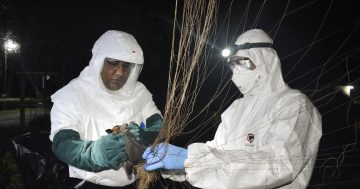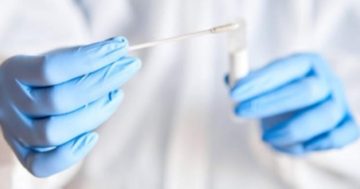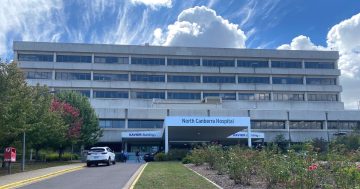 WA Health has issued a warning for the community to protect itself from a potentiality deadly bacterial infection.
WA Health has issued a warning for the community to protect itself from a potentiality deadly bacterial infection.
Health said its statistics are showing cases of Legionnaires’ disease increasing at this time of the year as the community begins its springtime planting.
It said a severe form of pneumonia comes with Legionnaires’ disease and it can occur when a person breathes in water droplets or dust contaminated with Legionella bacteria.
It said people risked infection from breathing in the Legionella longbeachae bacteria when they use bagged potting mixes, compost, mulches, and/or bulk soil supplies.
It said the common Legionella bacteria – Legionella pneumophila – was the one that contaminated air conditioning cooling towers, whirlpool spas, shower heads and bodies of water.
Executive Director of Environmental Health at WA Health, Dr Mike Lindsay said there had been 156 notifications of Legionnaires’ diseases attributed to exposure to garden soils and/or potting mix since the beginning of 2020.
“Of these, 97 cases required hospitalisation and sadly, two of these cases died,” Dr Lindsay said.
He said the risk and severity of infection increased for older people, smokers, or those with weakened immune systems.
“Gardeners can take simple precautions to reduce their risk when using bagged and bulk garden soils,” he said.
“This includes wearing gloves and a well-fitting disposable face mask, opening bagged potting mix carefully using scissors, keeping potting mix damp while in use, washing hands after handling potting mix and before removing masks and storing potting mix in a cool, dry place, out of the sun.”
Dr Lindsay said that early symptoms of Legionnaires’ disease were like a severe ‘flu’ infection and could develop up to 10 days after exposure to the bacteria.
Symptoms can include fever, chills, aching muscles and joints, a dry cough, headache (often severe), tiredness, loss of appetite and shortness of breath he said.
“If you experience symptoms, see your doctor or visit your local emergency department,” Dr Lindsay said.
“Early diagnosis and treatment with antibiotics will greatly improve patient outcomes,” he said.










